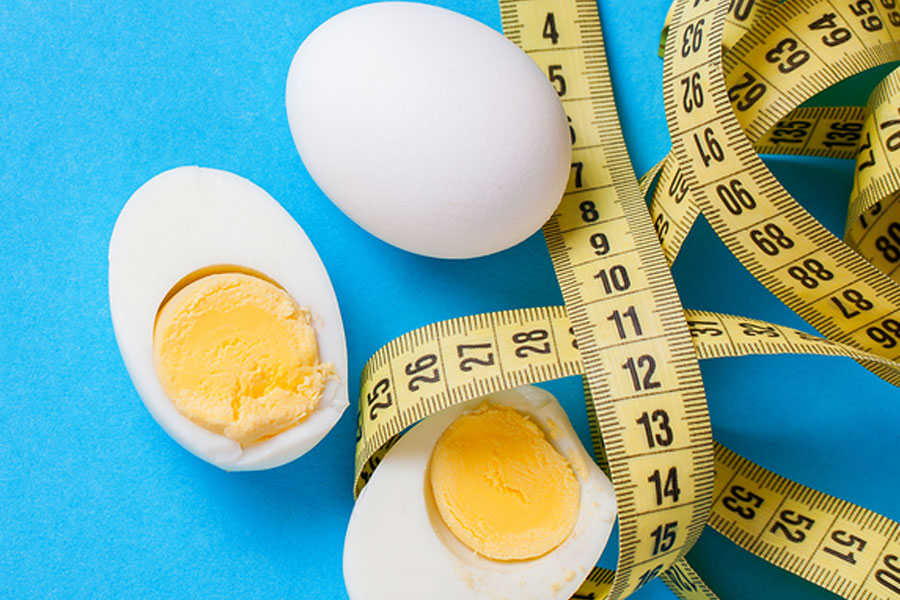By your Fitness Trainers at Century Fitness
More studies continue to show that eggs are really everything they are cracked up to be! In fact, it seems the tide is turning on the issue of cholesterol amounts, especially considering nutrient value. Decades ago some studies theorized that animal fat, which contains cholesterol, should be very limited in the diet. This caused consumers to follow guidelines that suggested eating fewer eggs.
Traditional government agencies and other advisory councils have recently pulled back on the effects of cholesterol in food. According to The Office of Disease Prevention and Health Promotion: “More research is needed regarding the dose-response relationship between dietary cholesterol and blood cholesterol levels. Adequate evidence is not available for a quantitative limit for dietary cholesterol specific to the Dietary Guidelines. Dietary cholesterol is found only in animal foods such as egg yolk, dairy products, shellfish, meats, and poultry. A few foods, notably egg yolks and some shellfish, are higher in dietary cholesterol but not saturated fats. Eggs and shellfish can be consumed along with a variety of other choices within and across the subgroup recommendations of the protein foods group.” (https://health.gov/dietaryguidelines/2015/guidelines/chapter-1/a-closer-look-inside-healthy-eating-patterns)
According to Harvard Health Publishing a recent… “study, published online May 21, 2018, by Heart, researchers examined the eating habits of 416,000 people, average age 50, who were free from heart disease and diabetes, and then kept track of their health for nine years. The researchers found that the study subjects who routinely ate eggs had a lower risk of death from stroke and heart disease compared with those who did not eat eggs. The researchers suggested that one explanation might be the fact that eggs contain heart-healthy nutrients, such as folate and omega-3 fatty acids.”
A Dozen Ways Eggs are Eggs-cellent:
- Eat omega-3 rich eggs… It turns out that the yolks are a treasure trove of nutrients (after all, they must supply the ingredients for creating new life),” says Dr Mark Hyman in Eat Fat, Get Thin.
- Eggs are appealing because they are nutrient dense and inexpensive.
- It’s easy to cook eggs: poach, scramble, over easy, soft/hard boil, bake.
- Eggs are full of antioxidants.
- For stronger bones, eat eggs – they have Vitamin D, which aids in calcium absorption from the foods we eat, B6, B12 and Folate.
- Eggs are readily available at grocery store, many convenience shops, farm stands and more.
- Eggs contain the most complete protein.
- They make other dishes complete and more nutritious, with minimal cooking effort, and, eggs are also an excellent binding agent in baking.
- Eggs are a lot of nutrition in a little package (just don’t drop).
A single large boiled egg contains:
Vitamin A: 6% of the RDA; Folate: 5% of the RDA; Vitamin B5: 7% of the RDA; Vitamin B12: 9% of the RDA; Vitamin B2: 15% of the RDA; Phosphorus: 9% of the RDA; Selenium: 22% of the RDA
Eggs also contain decent amounts of vitamin D, vitamin E, vitamin K, vitamin B6, calcium and zinc.
One egg comes with 77 calories, 6 grams of protein and 5 grams of healthy fats. Source: Healthline.com - Eggs are considered the most bioavailable whole food second only to mother’s milk.
- According to the National Institute of Health; “choline is …, an important neurotransmitter for memory, mood, muscle control, and other brain and nervous system functions. Eggs contain Choline!
- Studies show eggs increase HDL, which is high density lipoprotein (the “good” cholesterol) known to be helpful in keeping arteries clear and removing the LDL decreasing the risk of heart attacks and strokes
This article is intended to be provide knowledge of general health and fitness principles and is not medical advice. Please consult with a physician if you have questions.


Recent Comments